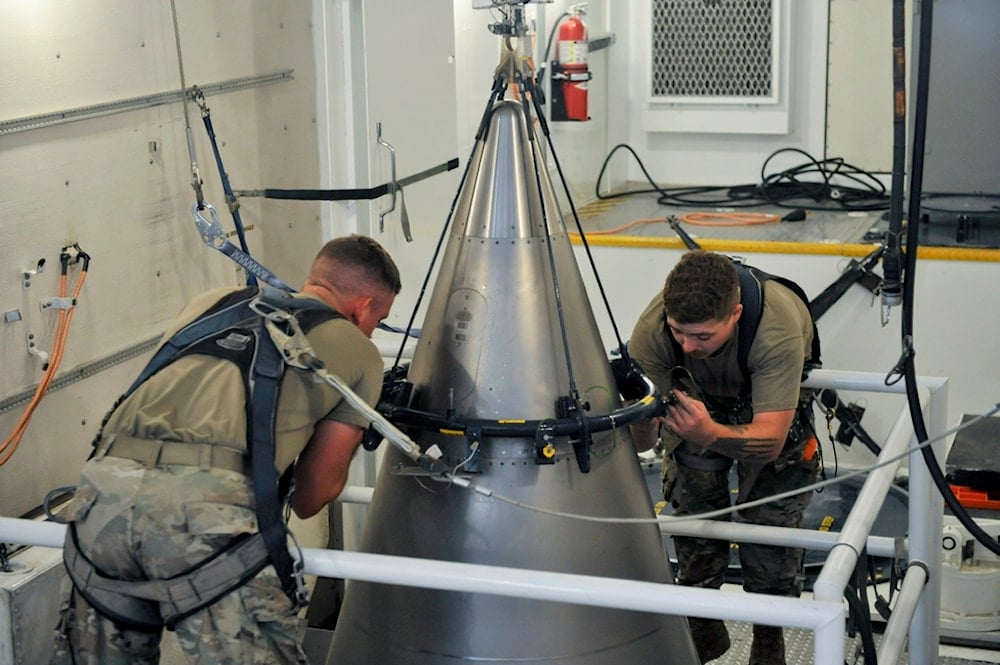US maintains option of nuclear first strike: Pentagon official
The most probable use of nuclear weapons in the current and future security environment would stem from a prolonged and intense conventional conflict, the Pentagon official said.
-

In this image provided by the U.S. Air Force, Senior Airman Jacob Deas, 23, left, and Airman 1st Class Jonathan Marrs, 21, right, secure the titanium shroud at the top of a Minuteman III intercontinental ballistic missile on Aug. 24, 2023, at the Bravo 9 silo at Malmstrom Air Force Base in Montana (AP)
The US has not ruled out the possibility of a nuclear first strike against an adversary, acting US Assistant Defense Secretary for Space Policy Vipin Narang said in an interview with the Center for a New American Security on Friday.
"We still leave open the possibility that we may have to use and employ nuclear weapons first against a strategic attack or to deter a nuclear attack," Narang said.
However, Narang noted that the primary challenge is how to deter Russia from using nuclear weapons.
Narang stated that Russia is a nuclear peer to the US, while China is developing its capabilities but is not yet at the same level. He also cautioned against underestimating the DPRK's nuclear potential.
Narang stated that the most probable use of nuclear weapons in the current and future security environment would stem from a prolonged and intense conventional conflict.
Read more: Ukraine striking Russia to lead to nuclear confrontation, analyst says
Experts and observers believe that Russia and China are less likely to do so because their policies are inherently focused on stability, deterrence, and avoiding escalations that could lead to disaster for their respective nations and the world at large.
Yesterday, Russian Deputy Foreign Minister Sergey Ryabkov told reporters that Moscow is not ruling out the deployment of nuclear missiles in reaction to the US deploying long-range missiles in Germany.
According to Ryabkov, if the German government believes it can carry out such "inflammatory activities", then Russia will "respond with retaliatory measures we deem appropriate."
Russia must not feel "internal constraint" as it calibers its response over what to deploy and where, Ryabkov noted, citing NATO's combined capabilities.
"It’s not about threatening anyone, it’s a way to find the most effective method to respond to the changing challenges, particularly in terms of costs," Ryabkov affirmed, citing a "wide range of options."
On January 27, a report by The Telegraph uncovered several documents indicating the US intent to transfer nukes to UK, marking a first since 2008. In March, a report by CNN revealed that the US began "preparing rigorously" since 2022 for Russia's potential use of a nuclear weapon in Ukraine.
Read more: Russia begins tactical nuclear weapon preparation and training

 3 Min Read
3 Min Read








